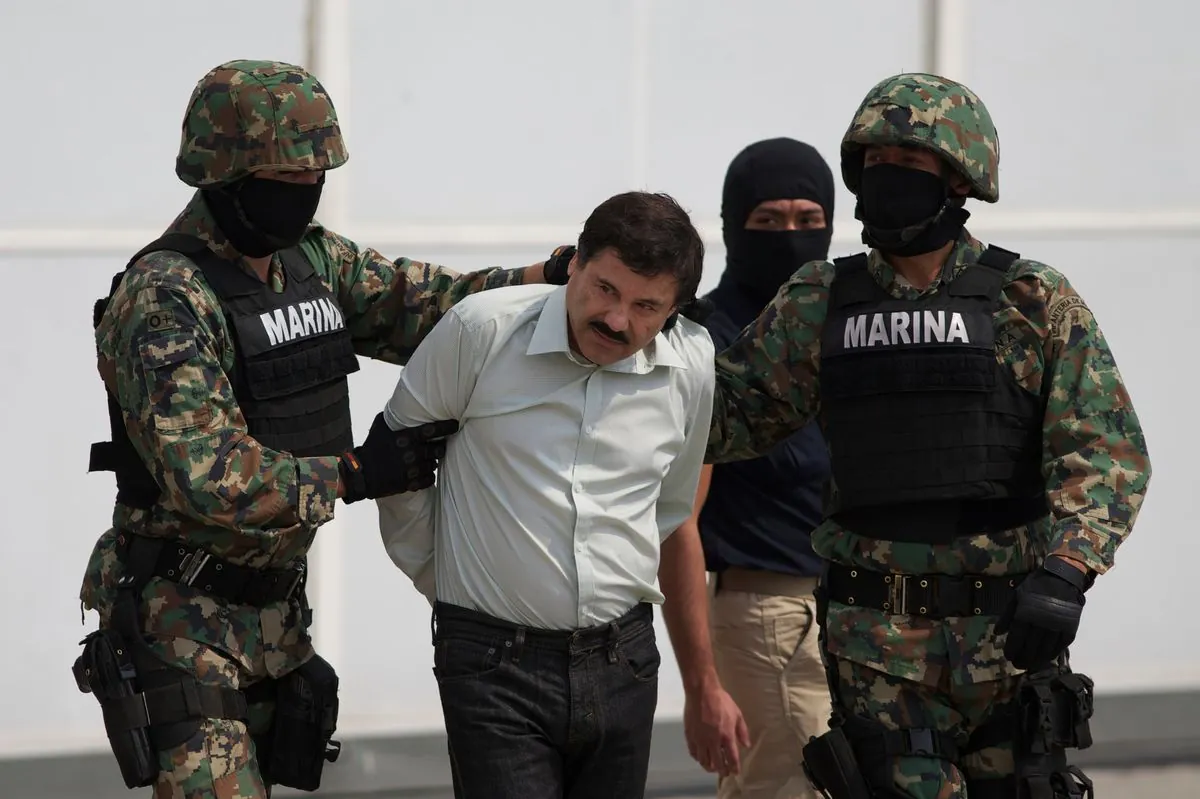Sinaloa Cartel Leaders' Arrests Spark Controversy Between U.S. and Mexico
Two high-ranking Sinaloa Cartel members are now in U.S. custody under disputed circumstances. The U.S. embassy denies involvement in their transport, emphasizing bilateral cooperation amid conflicting narratives.

In a significant development in the ongoing battle against drug trafficking, two prominent figures from the Sinaloa Cartel have recently come into U.S. custody under contentious circumstances. Joaquin Guzman Lopez, son of the notorious El Chapo, and Ismael "El Mayo" Zambada, a long-standing cartel leader, are now facing drug trafficking charges in the United States.
The Sinaloa Cartel, one of the world's most powerful drug trafficking organizations, has been a primary target for both Mexican and U.S. law enforcement agencies for decades. The cartel's influence extends far beyond Mexico's borders, with operations in multiple countries and sophisticated money laundering networks.
According to the U.S. embassy in Mexico, Guzman Lopez voluntarily surrendered, while the circumstances surrounding Zambada's arrest remain unclear. This discrepancy has led to conflicting accounts from their respective legal representatives. Zambada's lawyer alleges that his client was "forcibly kidnapped" near Culiacán, the capital of Sinaloa state and a known cartel stronghold, by Guzman Lopez and individuals in military uniforms. Conversely, the Guzman family's lawyer maintains that the surrender was voluntary and followed extended negotiations.

The murky details surrounding these high-profile arrests have sparked diplomatic tension between the United States and Mexico. Mexico's president has expressed dissatisfaction with the perceived lack of cooperation from the U.S. in this matter. In response, the U.S. embassy has categorically denied any involvement in the surrender or transportation of the cartel members, stating, "No U.S. resources were used in the surrender. It was not our plane, nor our pilot, nor our people."
This incident highlights the complex nature of U.S.-Mexico cooperation in combating drug trafficking. The two countries have a long history of joint efforts, but these have often been marred by diplomatic sensitivities and challenges in the extradition process. The Sinaloa Cartel, known for its extensive tunnel networks used for smuggling and its diversification into various criminal activities, has been a particular focus of these bilateral efforts.
Despite the controversy, the U.S. embassy views these arrests as "a great victory for both countries," emphasizing that the operation was conducted with respect for each nation's sovereignty. This sentiment underscores the delicate balance required in international law enforcement cooperation, particularly when dealing with high-profile cases involving powerful criminal organizations.
As both Guzman Lopez and Zambada have pleaded not guilty to the charges against them, the coming legal proceedings are likely to shed more light on the circumstances of their arrests and potentially reveal new information about the operations of the Sinaloa Cartel. The outcome of these cases could have significant implications for future U.S.-Mexico cooperation in the ongoing fight against drug trafficking and transnational organized crime.
"This represents a great victory for both countries. It is the result of a very precise work based on the principles of respect for our respective sovereignties and we do this work as partners."


































